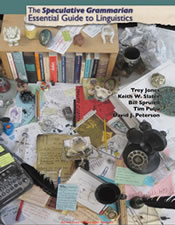According to an article I came across today, humans possibly have innate preferences for the sound patterns found in languages which might help babes to distinguish language from non-language and to acquire language.
An experiment undertaken by the National Academy of Sciences found that even new born babies show a preference for combinations of phonemes common in human languages over rare or non-linguistic combinations of phonemes. For example, it is relatively common for words to begin with bl, not very rare for them to start with lb. This suggests that the range of sound combinations found in languages, which though large, is limited by our brains innate preferences.
I found another report on this story on Science Daily which provides more details.


